Unveiling the Health Secrets of Indian Ingredients. Spice up your health with these 10 surprising benefits!
Namaste, readers! We all love tucking into a delicious plate of chole bhature or savoring a comforting
bowl of dal makhani. But did you know that the very ingredients that make Indian food so flavorful are also packed with amazing health benefits? Yes, you heard it right!
Your spice rack is a treasure chest of wellness, and we're here to unlock its secrets. Ditch those expensive supplements for a moment, and let’s explore ten surprising ways your favorite Indian ingredients can boost your health and well-being. Get ready to be amazed!
Your kitchen is about to become your personal pharmacy.
Turmeric: More Than Just a Pretty Color
Turmeric, the vibrant yellow spice that gives curries their signature hue, is a veritable powerhouse of health benefits. The star compound in turmeric is curcumin, a potent anti-inflammatory and antioxidant agent.
Studies show that curcumin can help reduce inflammation throughout the body, potentially easing the symptoms of arthritis and other inflammatory conditions. But the magic doesn't stop there. Curcumin also boasts brain-boosting properties.
It may help improve memory and cognitive function, and some research suggests it could even protect against age-related cognitive decline. What's more, turmeric has been linked to improved heart health. It can help lower cholesterol levels and reduce the risk of heart disease.
So, don't be shy about adding a generous pinch of turmeric to your dals, subzis, and even your morning smoothie! Remember, a pinch of black pepper can enhance curcumin absorption.
Ginger: The Soothing Spice
Ginger, with its sharp and spicy flavor, is a staple in Indian kitchens and a time-tested remedy for various ailments. Its most well-known benefit is its ability to soothe nausea and digestive discomfort.

Whether you're battling motion sickness, morning sickness, or simply feeling queasy after a heavy meal, ginger can come to your rescue. It works by speeding up the emptying of the stomach, which can help relieve nausea. But ginger's benefits extend far beyond the digestive system.
It also possesses powerful anti-inflammatory properties, thanks to compounds like gingerol. These compounds can help reduce pain and swelling associated with conditions like osteoarthritis.
Furthermore, ginger may help regulate blood sugar levels, making it a valuable addition to the diet of people with diabetes or those at risk of developing the condition. So, add ginger to your chai, grate it into your stir-fries, or chew on a small piece for a quick health boost.
Garlic: Nature's Antibiotic
Garlic, the pungent bulb that adds so much flavor to Indian cuisine, is also a powerful natural medicine. It's rich in allicin, a compound that exhibits potent antibacterial, antiviral, and antifungal properties. This means that garlic can help protect you against a wide range of infections.
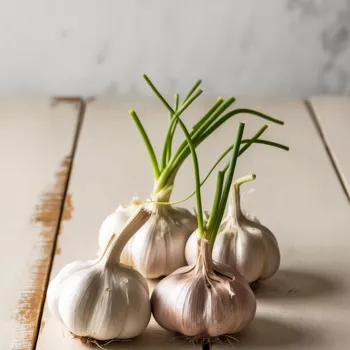
Studies have shown that garlic can help reduce the severity and duration of colds and flu. It can also help improve heart health by lowering blood pressure and cholesterol levels. Furthermore, garlic may have anti-cancer properties.
Some research suggests that it can help prevent the growth of cancer cells. So, don't be afraid to embrace the garlicky goodness in your cooking. Use it liberally in your dals, curries, and chutneys. Remember, the more you chop or crush garlic, the more allicin is released.
Cumin: The Digestive Aid
Cumin, the warm and earthy spice that's essential to so many Indian dishes, offers a surprising array of health benefits. It's particularly beneficial for digestion. Cumin stimulates the release of digestive enzymes, which helps break down food and improve nutrient absorption.
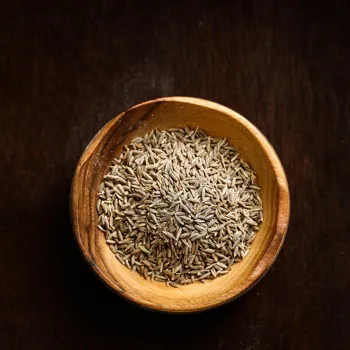
It can also help relieve bloating, gas, and indigestion. But cumin's benefits don't stop there. It's also a good source of iron, an essential mineral that helps transport oxygen throughout the body. Iron deficiency can lead to fatigue, weakness, and impaired cognitive function.
So, adding cumin to your diet can help boost your energy levels and improve your overall health. Furthermore, cumin may help regulate blood sugar levels and lower cholesterol. It's also a good source of antioxidants, which can protect your cells from damage.
Coriander (Dhaniya): The Detoxifier
Coriander, also known as cilantro or dhaniya, is a refreshing herb that’s used extensively in Indian cooking, both as a garnish and as a key ingredient. It’s not just about adding flavor; coriander is a powerful detoxifier. It helps to remove heavy metals and other toxins from the body.

This is particularly important in today's environment, where we are constantly exposed to pollutants. Coriander is also packed with vitamins and minerals, including vitamin C, vitamin K, and potassium. Vitamin C is a powerful antioxidant that boosts the immune system.
Vitamin K is essential for blood clotting and bone health. Potassium helps regulate blood pressure. So, don't just use coriander as a garnish; add it generously to your curries, dals, and chutneys to reap its full health benefits.
Cardamom: The Aromatic Healer
Cardamom, with its sweet and spicy aroma, is more than just a fragrant spice. It offers several surprising health benefits. For starters, cardamom can aid digestion. It helps stimulate the production of digestive enzymes and can relieve bloating and gas.

Cardamom also has antioxidant and anti-inflammatory properties. These properties can help protect against chronic diseases. Beyond digestion and inflammation, cardamom is also known to freshen breath. Chewing on a pod of cardamom can help combat bad breath and improve oral hygiene.
It also contains minerals like potassium, calcium, and magnesium, essential for maintaining overall health. Add it to your chai, desserts, and biryanis not just for flavor, but to reap its medicinal benefits.
Fenugreek (Methi): The Blood Sugar Regulator
Fenugreek seeds, known as methi in Hindi, are a common ingredient in Indian cuisine, particularly in pickles and curries. These tiny seeds boast significant health benefits, especially for regulating blood sugar levels.
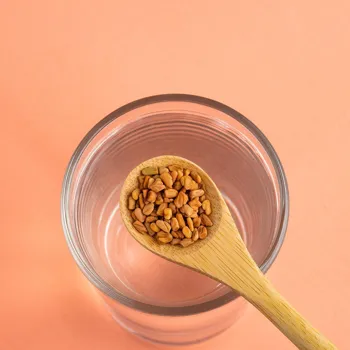
Studies have shown that fenugreek can improve insulin sensitivity and lower blood sugar levels in people with diabetes. It contains a high amount of soluble fiber, which slows down the absorption of sugar into the bloodstream. But fenugreek's benefits extend beyond blood sugar control.
It's also known to help lower cholesterol levels and improve heart health. In addition, fenugreek contains compounds that have antioxidant and anti-inflammatory properties. You can consume fenugreek seeds by soaking them overnight and drinking the water or adding them to your daily diet.
Cinnamon: The Sweet Spice with a Secret
Cinnamon, the warm and comforting spice that often graces our desserts and chai, is surprisingly beneficial for your health. It's packed with antioxidants that help protect your cells from damage and reduce inflammation.
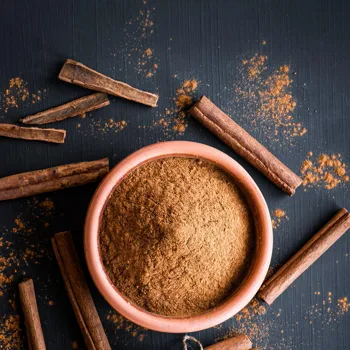
Cinnamon has also been shown to improve insulin sensitivity, making it beneficial for people with diabetes or insulin resistance. It can help regulate blood sugar levels and reduce the risk of complications associated with diabetes.
Furthermore, cinnamon may help lower cholesterol levels and improve heart health. The best part? It’s easy to incorporate into your diet – simply add a sprinkle to your morning oatmeal, your cup of chai, or even your favorite baked goods.
Cloves: The Pain Reliever
Cloves, those small, fragrant spice buds, pack a powerful punch when it comes to health benefits. One of the most well-known uses of cloves is as a natural pain reliever, particularly for toothaches. Eugenol, the main compound in cloves, has anesthetic and antiseptic properties.

Applying clove oil to a sore tooth can provide temporary relief from pain. Cloves also possess anti-inflammatory and antioxidant properties. These properties can help protect against chronic diseases and boost the immune system.
Furthermore, cloves can aid digestion by stimulating the production of digestive enzymes. So, next time you have a toothache or digestive discomfort, reach for the cloves!
Nutmeg: The Sleep Inducer
Nutmeg, the warm and aromatic spice that adds a touch of sweetness to desserts and beverages, surprisingly could also help you sleep better. Nutmeg contains compounds that may have calming effects on the nervous system.
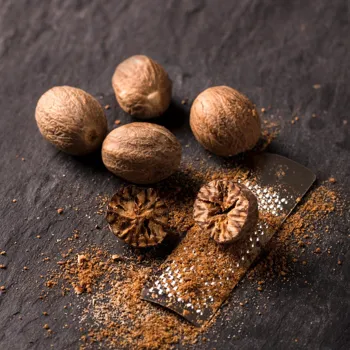
A warm glass of milk with a pinch of nutmeg before bed is a traditional remedy for insomnia. Beyond sleep, nutmeg also has other health benefits. It may help improve digestion, relieve pain, and boost immunity.
However, it's important to use nutmeg in moderation, as excessive consumption can have adverse effects. A pinch is usually more than enough to reap its benefits.
AI Generated Content. Glance/InMobi shall have no liability for the content









